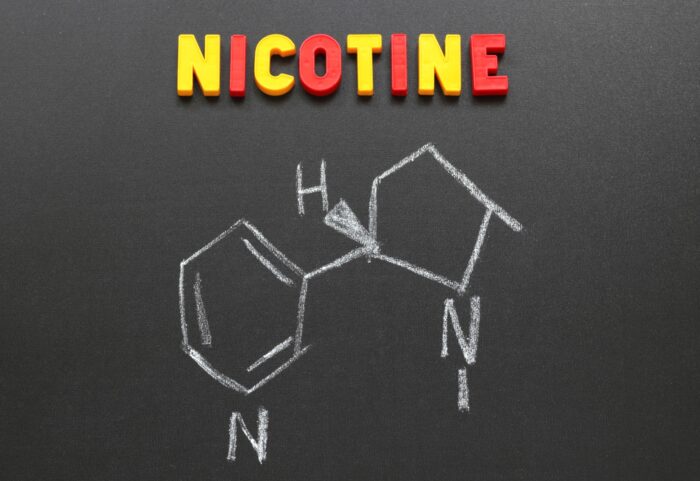
Reducing your nicotine intake can be a challenging but ultimately rewarding goal for smokers who want to improve their health and quit smoking. Nicotine is a highly addictive component in cigarettes and other tobacco products, and it can have harmful effects on your health, including an increased risk of heart disease, stroke, and cancer.
Fortunately, there are several effective ways to reduce your nicotine intake and break the cycle of addiction. Here are some additional tips on how to reduce your nicotine intake:
1. Set a quit date and stick to it
One effective way to reduce your nicotine intake is to set a quit date and stick to it. This can help you stay motivated and focused on your goal, and it can provide a clear timeline for your progress. When setting your quit date, it’s important to choose a time when you will be able to avoid triggers and stressors that can make quitting more difficult.
Once you have set your quit date, prepare yourself by removing smoking triggers from your environment, such as ashtrays, lighters, and cigarettes. You may also want to consider telling your friends and family about your quit date, as they can provide you with support and encouragement throughout the process.

2. Keep yourself busy with healthy habits
When you first quit smoking or start reducing your nicotine intake, you may find yourself craving nicotine more frequently. To help manage these cravings, it can be helpful to keep yourself busy with healthy habits. This can include engaging in physical activity, such as going for a walk or jogging or practising relaxation techniques, such as deep breathing or meditation.
Other healthy habits that can help reduce your nicotine intake include drinking plenty of water, eating a balanced diet, and getting enough sleep. By staying active and healthy, you can help to reduce your nicotine cravings and improve your overall well-being.
3. Use positive affirmations
Another effective way to reduce your nicotine intake is to use positive affirmations. Positive affirmations are statements that affirm your commitment to quitting smoking or reducing your nicotine intake, and they can help to boost your confidence and motivation.
Some examples of positive affirmations for quitting smoking include:
- I am strong and capable of quitting smoking.
- I am taking control of my health by reducing my nicotine intake.
- I am committed to my goal of reducing my nicotine intake, and I will succeed.
By repeating positive affirmations to yourself, you can help to reprogram your mind to think positively about your goals and stay focused on your progress.
4. Seek support from friends and family
Seeking support from friends and family is a critical step in reducing your nicotine intake and quitting smoking. Quitting smoking can be a challenging and stressful process, and having a support network can make a significant difference in your success.
Friends and family members can provide you with encouragement, support, and motivation to help you stay on track. They can also provide a sense of accountability, which can help you stay committed to your goal of reducing your nicotine intake.

5. Use technology to your advantage
Keeping yourself busy with healthy habits is an essential part of reducing your nicotine intake and quitting smoking. When you first start reducing your nicotine intake, you may experience strong cravings for nicotine. By keeping yourself busy with healthy habits, you can help manage these cravings and avoid relapsing.
There are many healthy habits you can adopt to help reduce your nicotine intakes, such as exercise, healthy eating, and practising relaxation techniques. Here are some additional ideas for how to keep yourself busy with healthy habits:
6. Vaping
Vaping can be helpful for quitting smoking because it provides an alternative method of nicotine consumption that is less harmful than smoking traditional cigarettes.
Vaping involves using an electronic cigarette or vape device to inhale a vapour that contains nicotine, flavourings, and other ingredients.
Here are some reasons why vaping can be helpful for quitting smoking:
Reduces exposure to harmful chemicals
Vaping can be less harmful than smoking traditional cigarettes because it reduces exposure to harmful chemicals. Traditional cigarettes contain over 7,000 chemicals, including tar and carbon monoxide, which can cause cancer, lung disease, and other health problems. Vaping, on the other hand, does not involve burning tobacco or other plant material, so it produces fewer harmful chemicals.

Provides a controlled dose of nicotine
Vaping can be helpful for quitting smoking because it provides a controlled dose of nicotine. Nicotine is an addictive component in cigarettes and other tobacco products, and it can cause strong cravings when you try to quit. Vaping devices allow you to control the amount of nicotine you consume, so you can gradually reduce your nicotine intake over time.
Helps manage withdrawal symptoms
When you quit smoking, you may experience withdrawal symptoms, such as irritability, anxiety, and insomnia. Vaping can help manage these symptoms by providing a controlled dose of nicotine that can help ease your cravings and improve your mood. Some vape devices also contain other ingredients, such as menthol, that can help soothe the throat and reduce coughing.
Provides a similar experience to smoking
One of the reasons people find it challenging to quit smoking is that they miss the physical act of smoking. Vaping can provide a similar experience to smoking, which can help make the transition to nicotine-free living easier. Vape devices come in a variety of flavours and styles, and they produce a vapour that simulates the smoke produced by traditional cigarettes.

Can be part of a comprehensive smoking cessation plan
Vaping can be helpful for quitting smoking when it is part of a comprehensive smoking cessation plan. A smoking cessation plan may include counselling, support groups, and other resources that can help you quit smoking and reduce your nicotine intake. Talk to your healthcare provider or a smoking cessation specialist to learn more about how vaping can be incorporated into a comprehensive plan.
In conclusion, vaping can be helpful for quitting smoking because it reduces exposure to harmful chemicals, provides a controlled dose of nicotine, helps manage withdrawal symptoms, provides a similar experience to smoking, and can be part of a comprehensive smoking cessation plan.











